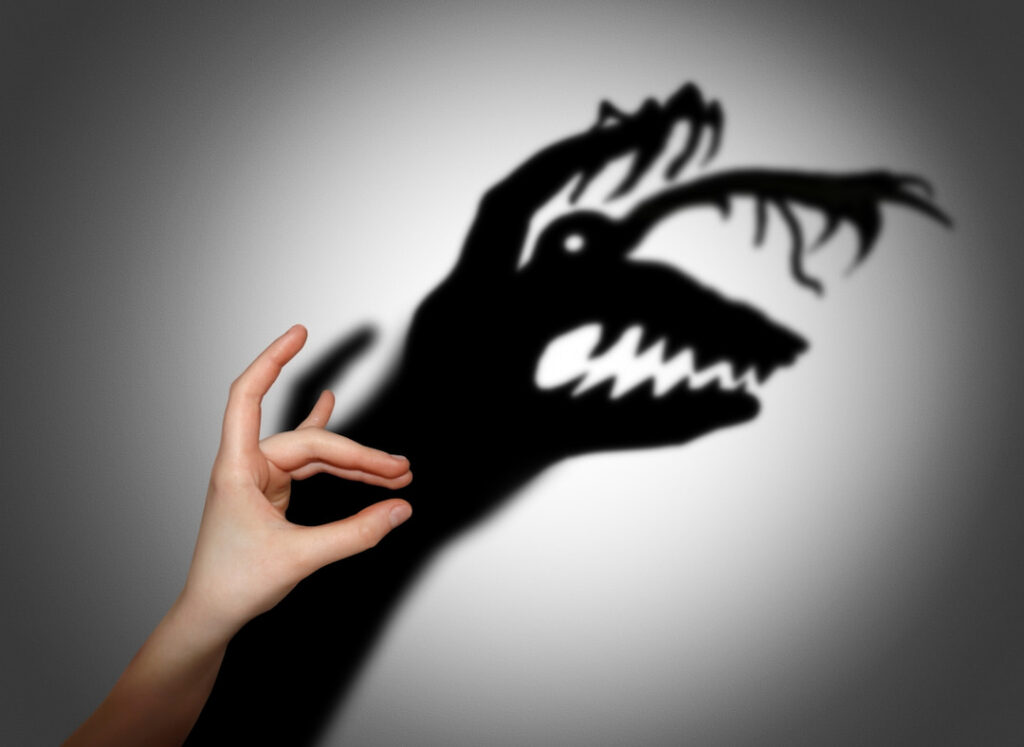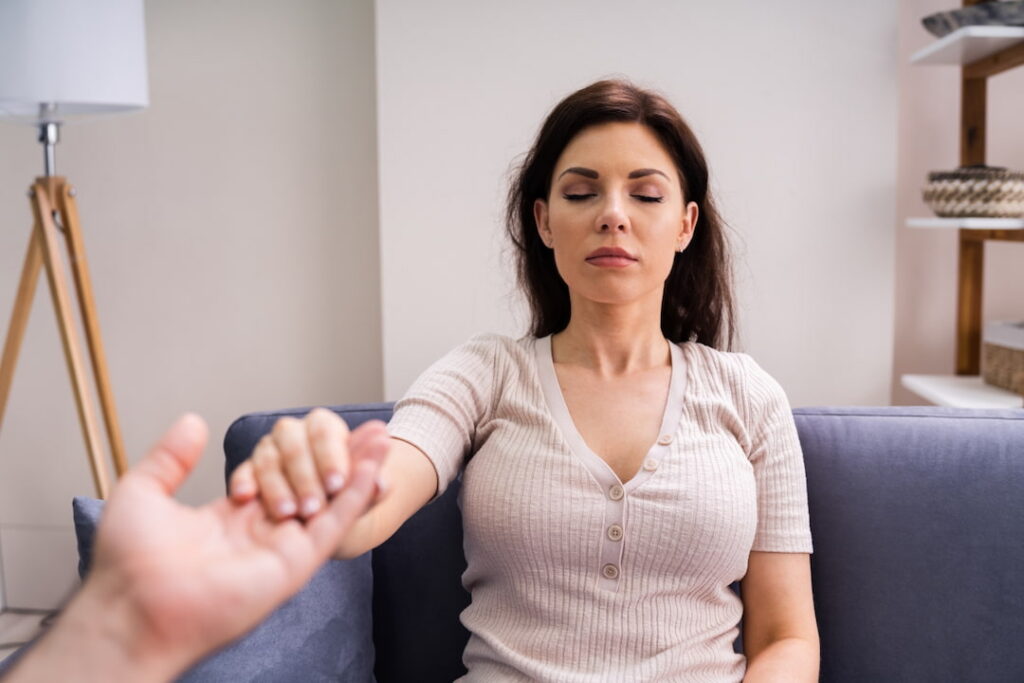Research suggests that hypnotherapy can help people overcome (or at least deal with) a wide variety of common mental health problems. Examples of which include stress, anxiety, and panic attacks – all of which have been known to be brought under control, with the deep relaxation techniques associated with hypnotherapy.
But to what extent is hypnotherapy a viable form of treatment for those looking to overcome a fear, paranoia or phobia? If you develop (or have always lived with) a debilitating phobia that has a negative impact on your life, can hypnosis prove just as effective as conventional therapy?
Moreover, is it necessary to visit hypnotherapists for a series of sessions, or is treating a phobia with hypnosis possible without involving a therapist at all? Could it be as simple as using the information on a website to teach yourself how to tap into your subconscious and bring the situation under control?
Drawing a Line Between Fears and Phobias
In order to understand if and to what extent hypnosis for fear can help with phobias as well, it’s first necessary to draw distinctions between the two.
Each and every human being experiences fear from time to time. It is a normal, natural, and healthy response to what the brain interprets as a potential threat. Threatening scenarios prompt your subconscious (or unconscious) mind to tell your conscious mind and your body to take action, in order to stay safe.
Something that is often referred to as the ‘fight or flight response, which depending on the situation can be anything from mild to overwhelming.
Fears are different from phobias for the simple reason that not only does everyone experience fear, but most fears are rational in nature, like fear of heights. We fear things that could most likely cause us harm if they ever came to be, or if we failed to act appropriately when faced with them.
By contrast, many common types of phobias (in children and adults alike) are wholly irrational in nature. Classic examples of which include phobias that concern spiders, mice, phobias from small spaces, or even open spaces. Even though you may know there’s technically nothing to fear as none of these things pose a threat to your health and wellbeing, you may find even the thought of them enough to trigger a state of panic and anxiety. In such situations, patients who are facing medical procedures, such as giving birth or surgeries, can use hypnosis for relieving stress.
A Question of Severity
In addition, the state of anxious panic (or even paranoia) that accompanies a phobia is on a completely different level to that of a more ‘conventional’ fear. If there is an object or situation you fear, you can usually deal with the negative associations by yourself. If you had a phobia regarding the same object or situation, your response to it (perhaps at the very mention) could be more severe.
For example, somebody who is afraid or has to fear spiders may respond with terror if presented with one in the flesh but may be able to cope with a picture or video of a spider. By contrast, the same stimulus presented to someone with a phobia could trigger a much more severe reaction – anxiety, fear, terror, nausea to the point of needing to vomit, and so on.

As fears tend to be milder than a comparable phobia, it can be much easier to treat. Likewise, fears that have an identifiable cause can be much easier to control if it affects the mental health or life of the person in question.
By contrast, the severity of a phobia can make the treatment process more difficult. Particularly so in the case of a phobia where the patient is not aware of any specific reason why they developed the phobia in the first place. A traumatic situation is often the root cause of a phobia, but many cannot be traced back to anything specific or significant.
The severity and root cause (if identifiable) of the phobia will influence which treatments may or may not be appropriate, including whether professional support should be sought.
Hypnotherapy Vs a Phobia: Mind Over Matter?

What’s interesting about most cases of phobia is the way in which those concerned fully understand that their response to the stimulus in question is irrational and exaggerated. For example, a person may have a mortal fear of spiders and anything associated with arachnids, despite having never encountered one in the flesh and being fully aware of their harmless nature.
To develop a phobia with no identifiable cause can lead to the assumption that it will be difficult or impossible to treat. After all, how can you help people who are terrified of something they already know poses no threat to them? If they’re fully aware of the fact that their fear is irrational, how can you help them come to terms with it?
The answer could lie in the traditional ‘mind over matter’ approach but in this instance an approach that focuses on the subconscious and unconscious mind. The power of the subconscious is often underestimated, but nonetheless has more control over our lives than most people realize.
It’s the subconscious that’s responsible for the feelings of fear, anxiety, stress, worry, sadness, and panic we all experience from time to time. If we had any direct control over our subconscious, we’d be able to ‘flip the switch and turn these feelings off on demand.
Not something most people can do, but a feat that can be accomplished through hypnotherapy.
Hypnotherapy Can Help Cure Phobias
If hypnosis is genuinely able to create more concrete connections between the conscious and subconscious mind, it could work wonders for any person with life-affecting anxiety and phobias.
“Being able to face your fears either using your imagination or experiencing it first hand whilst remaining calm and in control is empowering and helps you to put the phobia into perspective. A good hypnotherapist will never spring surprises on you and will work gradually with you to build your confidence and resilience.” – a quote from noted hypnotherapist Anne Millne-Riley.
Hypnosis is not about attempting to ‘cure’ anything outright, for the simple reason that there is no cure for most mental health conditions. Instead, treatments like these focus more on hypnotic suggestions, coping techniques, and the search for ways to improve our lives from within.

At its core, hypnosis is a structured scientific process that enables a person to transcend from relaxation into a trance-like state, at which point they’re able to reprogram their subconscious. Or at least, view their behaviors from an entirely new standpoint, allowing them to make better sense of their situation.
Hypnosis can be helpful on a level that goes beyond other forms of related therapy for phobias, due to the fact that it is the only approach that looks to tap directly into the subconscious mind.
Does Hypnosis (and Self Hypnosis) Actually Work?
The answer to both of these questions is the same – it depends on who you are, what you are looking to achieve, and whether or not you are open to the idea of hypnosis.
For some, the services of a trained hypnotherapy provider over a series of sessions are the only form of hypnosis that works. By contrast, others find it equally (or even more) helpful to take control of their own sessions at home.
Hypnosis in its conventional form works – a proven scientific fact. Whether you’re able to take things to such a level where you’re able to hypnotize yourself is another matter entirely. Anecdotal evidence suggests it is perfectly possible, but it is not something that everyone has the mindset to achieve.
In any case, helpful tutorials and related content have been published all over the web, which can be accessed free of charge with a quick search.

